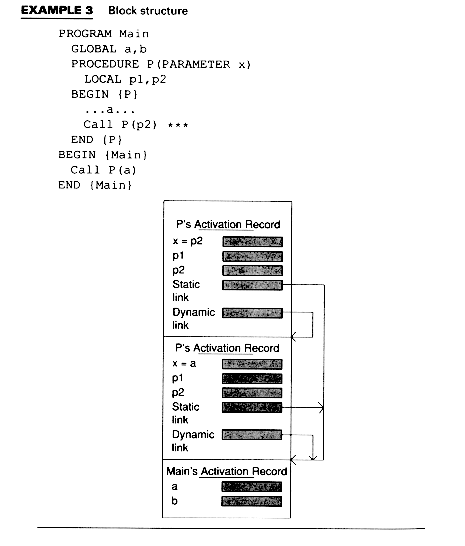
Block-structured languages allow units to be nested. Most commonly, it is subprograms (procedures) that are nested, but languages such as Algol and C allow a new unit to be created, and nested, merely by enclosing it with BEGIN-END, { }, or similar constructs.
The unit within which a variable is "known" and has a value is called its scope. For many languages a variable's scope includes the unit where it is defined and any contained units, but not units that contain the unit where the variable is defined.
During execution, block-structured languages cause a new complication since a value may be assigned or accessed for a variable declared in an "outer" unit. This is a problem because the activation record for the unit currently executing is not necessarily the activation record where the value is to be stored or found.
A new piece of information must be added to the activation record to facilitate this access. Pointers called static links point to the activation records of units where variables, used in the current procedure, are defined. Uplevel addressing refers to the reference in one unit of a variable defined in an outer unit. A sequence of static links is called a static chain.
Example 3 makes two changes to the program of Example 2. The variables a and b are now global to the program, and procedure P references variable a. An additional field, the static link, is shown in P's activation record.

In Example 3, the static link points from the activation records for P to that for Main since P is nested within Main.
Once again though, the actual size of the activation record is known at compile-time.
